The growing global consciousness regarding environmental concerns has prompted a surge in the use of natural cosmetics in Vietnam. With an increasing number of individuals seeking safer and healthier options over conventional chemical-based beauty items, natural beauty products have gained significant traction. The availability and acceptance of natural cosmetic products in Vietnam have risen as the country strives to lead the way in sustainable living. This article aims to provide insights into the ingredients for making natural cosmetics.
Definition Of Natural Cosmetics
Natural cosmetics are products made from natural sources, without synthetic or artificial additives, animal by-products, or harsh chemicals. Instead, they use natural substances like oils, extracts, minerals, and waxes to create makeup, skincare, and haircare that nourish your skin without causing irritation or damage. The beauty of natural cosmetics lies in their simplicity and gentleness, providing an effective way to care for your skin without any negative side effects. Moreover, using natural ingredients is also environmentally friendly. In addition, natural cosmetics are often more affordable than synthetic ones, making them accessible to everyone. With their rising popularity in Vietnam, it’s a great time to try natural cosmetics and experience their benefits.
Definition Of Natural ingredients
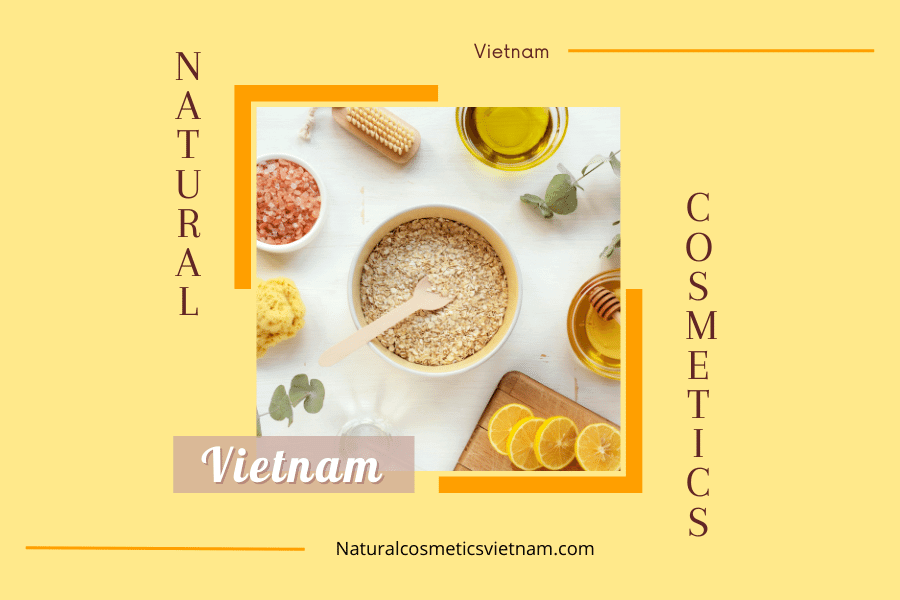
Natural ingredients to make natural cosmetics
Natural ingredients are substances that are derived from natural sources, such as plants, animals, minerals, and other naturally occurring materials. These ingredients are not chemically synthesized or artificially created and are minimally processed to maintain their natural properties. Natural ingredients are commonly used in various industries, including food, cosmetics, and medicine, and are often chosen for their perceived health benefits and environmental sustainability. In the context of cosmetics, natural ingredients are used to formulate natural cosmetics that are considered safer and healthier alternatives to conventional cosmetics.
Benefits Of Natural Cosmetics
Natural cosmetics offer numerous benefits when incorporated into your beauty routine, from reducing irritation and inflammation to providing essential nutrients for healthy skin. In Vietnam, the world of natural cosmetics is a wonderful one to explore, and these products should become a regular part of your beauty regimen.
Firstly, natural cosmetics are gentle and free from harsh chemicals, fragrances, and synthetic dyes. This makes them ideal for sensitive skin, as they don’t cause irritation or inflammation. Natural ingredients like plant-based oils and extracts contain antioxidants that can help protect against environmental damage, keeping the skin looking youthful. They also often contain vitamins and minerals that nourish the skin, keeping it looking its best.
Another benefit of natural cosmetics is that they are safe and non-toxic. Unlike many conventional products that contain ingredients like parabens, sulfates, and formaldehyde, which can be harmful to the environment and our health when used long-term, natural cosmetics contain only safe and natural ingredients. This gives you peace of mind, knowing that everything you apply to your skin is completely safe.
If you’re looking for an effective way to care for your skin while being mindful of the environment, natural cosmetics are an excellent choice. They provide essential nutrients for healthy skin, reduce irritation and inflammation, and are free from harsh chemicals and synthetic dyes, making them an ideal choice for anyone who wants to look their best while protecting their health.
How important is it to choose suitable natural cosmetic ingredients?
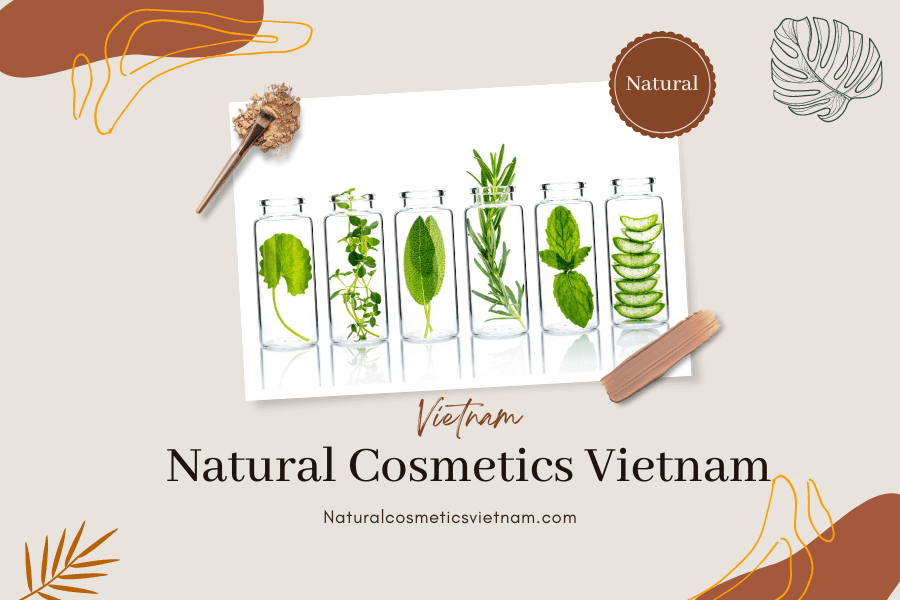
Natural ingredients to make natural cosmetics
For any production field, the input materials always play a crucial role. This is particularly true for processing and manufacturing natural cosmetics, especially those with 100% natural ingredients. If the natural cosmetic ingredients are safe and suitable, the final product will meet the quality requirements set by the manufacturer from the outset.
Firstly, a good cosmetic product must have a high level of credibility and usefulness. Therefore, the selection of natural cosmetic ingredients during production must be meticulous and precise. It is necessary to choose safe ingredients that do not harm the skin. Conversely, if natural cosmetic ingredients that are not safe or contain harmful chemicals are chosen, it can lead to skin damage. In some cases, it may even cause skin diseases, including skin cancer.
Therefore, when producing cosmetics, we cannot deny the importance of selecting suitable natural cosmetic ingredients.
Common Ingredients In Natural Cosmetics
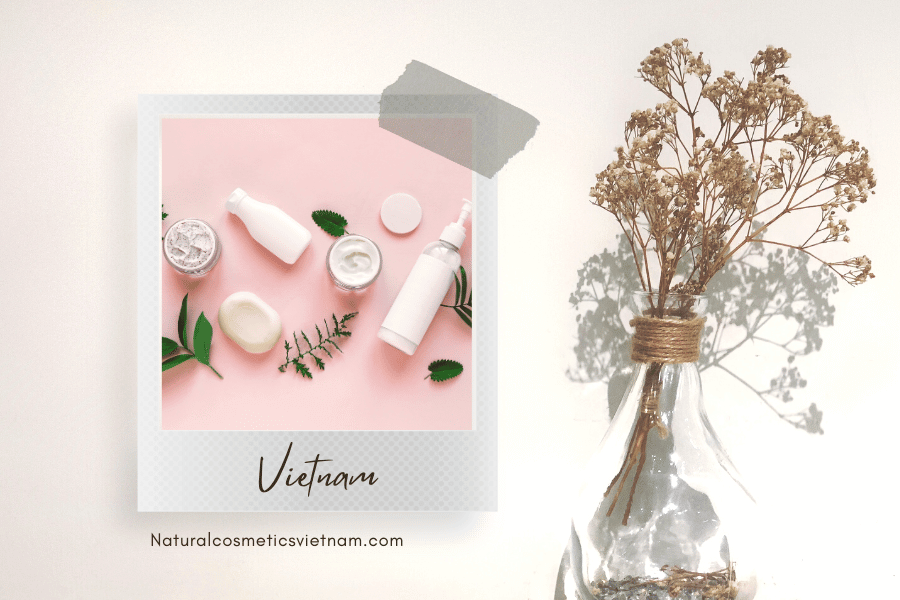
Natural ingredients to make natural cosmetics
The following natural cosmetic ingredients are among the most common and can be used as a reference for those interested in learning about and using them to produce natural cosmetics.
Rice Bran Powder
Recently, rice bran has become a popular natural beauty method for firming and brightening the skin. Rice bran powder is actually a film that surrounds the rice grain, similar to a layer of powder. After milling the rice, the lobster shell and rice bran film are separated at the same time. However, when freshly ground, rice bran powder contains a lot of impurities, so it needs to be carefully filtered to remove the chaff and sand from the mixture before use.
Rice bran powder can be used for exfoliating, face masks, and facial cleansing. It is effective in treating acne, reducing dark spots, softening, and brightening the skin. Science has proven that in addition to protein, carbohydrates, lipids, biotin, and vitamin E, rice bran is also rich in vitamin B such as B1, B2, B6, which can bring many useful effects to the human body. Additionally, rice bran powder is gentle on the skin, especially for sensitive skin.
Beeswax
Beeswax contains amino acids that promote cell growth, and medium-chain fatty acids that have antibacterial effects, aiding in wound healing. It also contains vitamin groups and minerals that nourish the skin, moisturize, smooth, prevent aging, and treat acne.
Beeswax contains fatty acids and esters, caffeic acid phenethyl ester (CAPE), bioflavonoids, vitamin groups such as B1, B2, vitamin A, E, and D, nicotinic acid, folic acid, and minerals such as calcium, magnesium, iron, copper, zinc, and manganese. Beeswax can be used to make lip balm or as a moisturizing agent in lip balm. In addition, many cosmetic manufacturers have used natural honey in skin moisturizers, anti-aging creams, face creams, masks, and brightening agents due to honey’s moisture-absorbing properties.
Argan Oil
Argan oil is extracted from the seeds of the argan tree, which originates from the southwestern region of Morocco. The main components of argan oil are fatty acids and numerous phenolic compounds. Additionally, the oil is a rich source of vitamin E, which is essential for skin and hair. This vitamin also has excellent anti-inflammatory and antioxidant properties.
Cosmetic brands have used argan oil in products such as lip balm, moisturizers, and especially in hair care and nourishment products.
Camellia Seed Oil
Camellia Seed Oil is rich in Vitamin A and Vitamin C, two essential nutrients that can regenerate and restore skin cells. This light oil gently removes dead skin cells, leaving the skin looking youthful and fresh. In addition, Camellia Seed Oil contains linoleic acid, linolenic acid, and Omega-3, which are excellent for retaining and providing moisture to the skin, stimulating collagen production, and rich in Vitamin C and Vitamin A.
Camellia Seed Oil is commonly used in vitamin products such as serum, whitening serum, restoring creams, and especially sunscreen cream thanks to its ability to reduce the harmful effects of sunlight and UV rays.
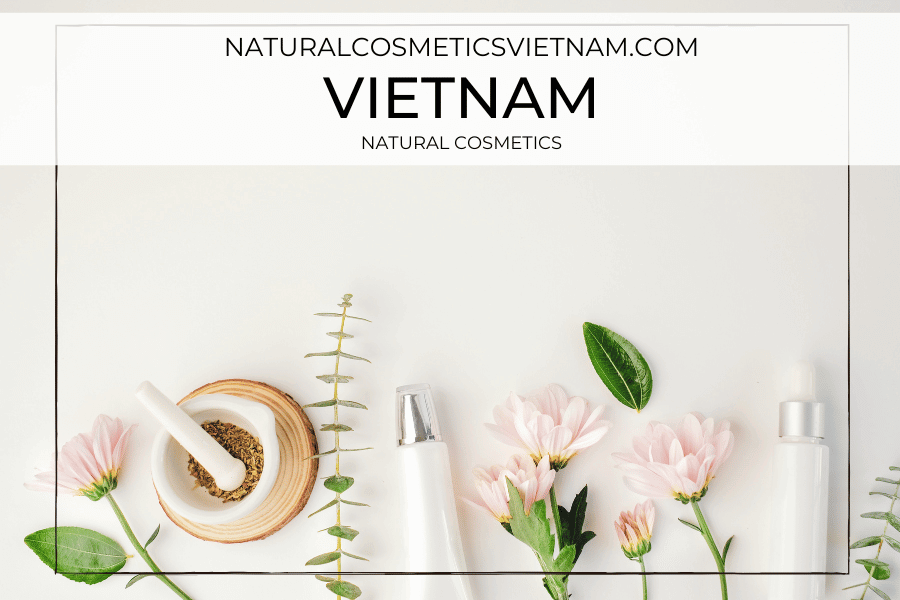
Natural ingredients to make natural cosmetics
Pure Coconut Oil
Pure Coconut Oil contains important minerals and some vitamins that are soluble in fat, such as calcium, magnesium, beta-carotene, vitamin A, D, E, and K that the body can immediately absorb and utilize. The nutrients in Coconut Oil are beneficial for the health of all skin types. Coconut Oil contains medium-chain fatty acids such as lauric acid and capric acid, which have antibacterial and acne-fighting properties. You can use Coconut Oil to moisturize your face and lips.
In cosmetics production, Coconut Oil is most commonly used in lip and hair care products, or in facial masks for skin care.
Shea Butter
Shea Butter is a plant-based butter originating from Africa, extracted from the Shea-Karite tree, providing vitamin A, E, F, and essential fatty acids that help to synthesize collagen and antioxidants for the skin. In addition, Shea Butter contains many fatty acids that help remove sebum from the skin and make the skin cleaner. Shea Butter also helps to moisturize the skin and lock in moisture in the epidermis so that the skin does not become too dry. By restoring the natural balance of the skin, Shea Butter is very effective in preventing acne formation.
Shea Butter is commonly used in moisturizing and restoring products that help to restore moisture to the skin and lock in moisture in the epidermis, so that the skin does not become too dry.
Activated Bamboo Charcoal Powder
The carbon structure of bamboo charcoal is in the form of honeycomb and porous, which has a large contact area, meaning it has a high adsorption and binding capacity with other ions, atoms, and molecules. Activated bamboo charcoal masks, facial cleansers, and gels have the ability to cleanse the skin, remove toxins, sebum, and dirt on the skin, shrink pores, and effectively reduce acne.
Bamboo Charcoal Powder has a cleansing and exfoliating effect, so products such as facial cleansers, exfoliators, and toothpaste often contain bamboo charcoal.
Neem leaf powder
In traditional medicine, neem leaf powder has a bitter taste and a cooling property that can help reduce inflammation, swelling, control oil, treat acne, allergies, tighten pores, fade dark spots, anti-aging, and naturally brighten and smooth the skin. Products containing neem leaf powder are mainly specialized in treating acne, especially for sensitive skin.
Lavender
According to dermatologists, lavender has anti-inflammatory and antimicrobial properties. Therefore, lavender essential oil has the ability to inhibit bacteria that cause infection, cleanse the skin, and help regulate excess sebum by controlling hormones and reducing scars. Due to its strong scent, lavender is often found in products such as skin whitening shower gel, moisturizing cream, perfume, exfoliating scrub, shampoo, conditioner, toner, and facial cleanser.
Aloe Vera
Aloe vera extract is taken from pure aloe vera plants, which is a compound that helps retain moisture, nourish, and soften the skin. It also has anti-inflammatory, antibacterial properties to fight damage caused by UV rays. Aloe vera contains effective stimulating agents, so we often find products such as eyelash and hair growth serums containing aloe vera. In addition, aloe vera is used for exfoliating dead skin cells and is found in moisturizing creams for the skin.
Essential oils
Essential oils are a commonly used ingredient in natural cosmetics. They are extracted from various plants, including flowers, leaves, branches, roots, bark, fruits, and seeds, and are used for their fragrance, moisturizing, antioxidant, and antibacterial properties. Here are some types of essential oils commonly used in the production of natural cosmetics:
- Rose oil: moisturizes and softens the skin, as well as brightens and increases skin elasticity.
- Lemongrass oil: has cooling and antibacterial properties, and is used in skin care products such as moisturizers and soaps.
- Tea tree oil: has antibacterial and odor-killing properties, and is used in sensitive skin care products such as deodorants and bikini area care.
- Grapefruit oil: balances and brightens the skin, helps fade scars and brown spots.
- Lavender oil: has soothing and calming properties, and is used in sensitive skin care and hair care products.
- Peppermint oil: has cooling and calming properties, and is used in sensitive skin care products.
- Jojoba oil: moisturizes and softens the skin, and is used in skin care products such as moisturizers and soaps.
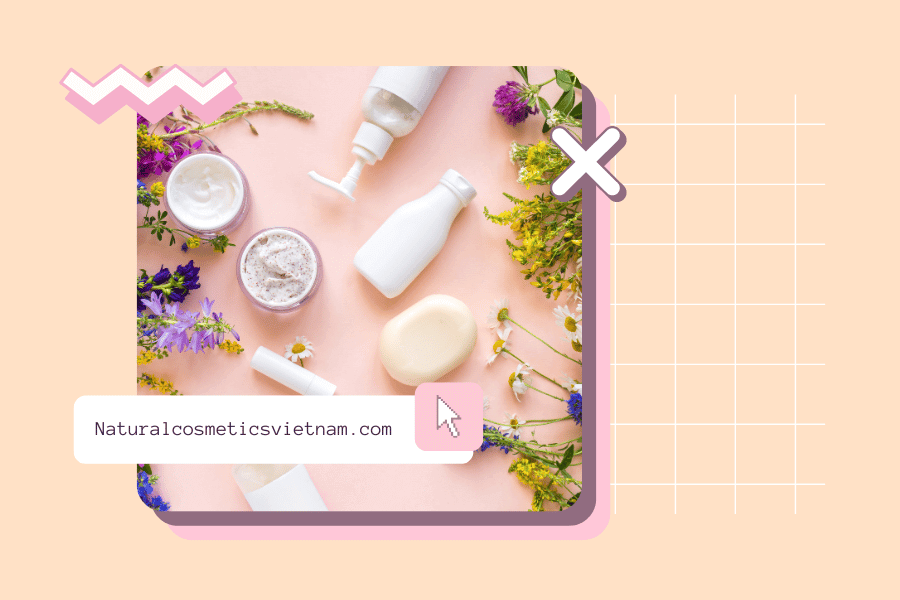
Natural ingredients to make natural cosmetics
Botanical extracts
Natural plant extracts are commonly used ingredients in natural cosmetics. These extracts are obtained from various parts of plants, such as flowers, leaves, stems, roots, bark, fruits, and seeds, and are used for their beneficial properties such as antioxidant, anti-inflammatory, and moisturizing effects. Below are some common plant extracts used in natural cosmetics:
- Chamomile extract: known for its soothing and anti-inflammatory properties, chamomile extract is often used in products for sensitive or irritated skin.
- Green tea extract: rich in antioxidants, green tea extract is often used in anti-aging and skin-brightening products.
- Calendula extract: derived from marigold flowers, calendula extract is known for its anti-inflammatory and wound-healing properties and is often used in products for sensitive skin or to treat skin conditions such as eczema.
- Ginseng extract: known for its revitalizing and energizing properties, ginseng extract is often used in anti-aging and brightening products.
- Aloe vera extract: known for its moisturizing and soothing properties, aloe vera extract is often used in products for sensitive or dry skin.
- Licorice root extract: known for its brightening and anti-inflammatory properties, licorice root extract is often used in products to treat hyperpigmentation and dark spots.
- Rosehip extract: rich in vitamin C and antioxidants, rosehip extract is often used in anti-aging and skin-brightening products.
- Ginkgo biloba extract: known for its antioxidant and anti-inflammatory properties, ginkgo biloba extract is often used in products to improve skin texture and reduce redness.
Mango oils
Mango oil is a common ingredient in natural cosmetics, extracted from the seeds of the mango tree. It contains a variety of vitamins and essential fatty acids that help to moisturize and nourish the skin. Here are some natural cosmetic products made from mango oil:
- Moisturizer: Mango oil is a key ingredient in natural moisturizers. It provides hydration to the skin, leaving it soft and smooth.
- Hair conditioner: Mango oil is used in natural hair conditioners to provide nourishment, reduce breakage, and prevent dryness.
- Shower gel: Mango oil is used in natural shower gels to provide moisture to the skin, leaving it soft and smooth.
- Massage oil: Mango oil is used in natural massage oils to provide hydration to the skin and help relax the body.
- Lip care products: Mango oil is used in natural lip care products, such as lip balms, to provide nourishment to the lips, leaving them soft and smooth.
Clay
Natural cosmetic ingredients from clay are commonly used in skincare products. Clay is a natural mineral with absorbent and cleansing properties, and it is used to treat skin issues such as acne, excess oil, and sensitive skin. Below are some common types of clay used in natural cosmetics:
- Green clay: Green clay has soothing properties and absorbs excess oil. It is often used in skincare products for sensitive and oily skin.
- White clay: White clay cleanses the skin and absorbs toxins. It is often used in exfoliating products and other skin cleansers.
- Red clay: Red clay softens and nourishes the skin. It is often used in skincare products to smooth and brighten the complexion.
- Pink clay: Pink clay hydrates and brightens the skin. It is often used in skincare products to balance moisture and soften the skin.
- Black clay: Black clay deeply cleanses and absorbs toxins. It is often used in skincare products for acne-prone and oily skin.
Natural dyes
Natural ingredients for cosmetics from natural dyes are widely used in the production of natural cosmetics to create natural colors and scents. Natural dyes are often extracted from fruits, vegetables, seeds, flowers, leaves, and tree bark. Here are some common natural dyes used in natural cosmetics:
- Red: Extracted from beets, raspberries, cherries, chamomile, and roses.
- Orange: Extracted from pumpkins and cocoa beans.
- Yellow: Extracted from turmeric, carrots, chamomile, and cocoa beans.
- Green: Extracted from basil leaves, mint leaves, spinach leaves, parsley, and kale.
- Blue: Extracted from mint leaves, chamomile, and butterfly pea flowers.
- Purple: Extracted from turmeric, cherries, chamomile, and beets.
- Brown: Extracted from brown sugar, coffee beans, and cocoa beans.
Benefits Of Natural ingredients
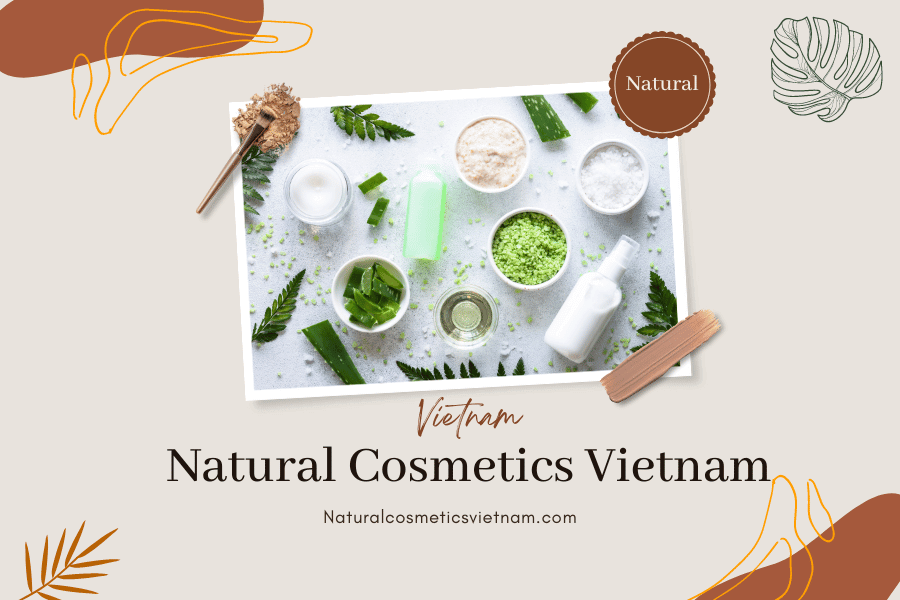
Natural ingredients to make natural cosmetics
Natural ingredients have numerous benefits, both for our health and the environment. Here are some of the benefits of using natural ingredients:
Non-toxic
Non-toxic refers to something that does not contain harmful substances or chemicals that can cause harm to living organisms. In the context of personal care products, non-toxic products are free from synthetic ingredients such as parabens, phthalates, sulfates, and artificial fragrances, which have been linked to various health concerns such as cancer, hormonal disruptions, and allergies.
Using non-toxic products is important for our health as well as the environment. When we use products that contain harmful chemicals, these chemicals can be absorbed through our skin and enter our bloodstream, potentially causing health problems. Additionally, when these products are washed down the drain, they can pollute the environment and harm aquatic life.
By choosing non-toxic products, we can minimize our exposure to harmful chemicals and reduce our impact on the environment. Look for products that are made with natural and organic ingredients and free from synthetic chemicals. Reading product labels and doing research on the ingredients used in personal care products can help you make informed choices about the products you use.
Environmentally friendly
Environmentally friendly, also known as eco-friendly, refers to practices or products that have minimal negative impact on the environment. They are designed to reduce pollution, conserve resources, and promote sustainability.
In the context of personal care products, environmentally friendly products are made from natural and organic ingredients that are biodegradable and do not contain harmful chemicals or synthetic fragrances that can pollute the environment. These products are typically packaged in sustainable materials such as recycled paper or glass, and use minimal packaging to reduce waste.
Using environmentally friendly products can have a significant impact on the environment. For example, choosing natural and organic skincare products can reduce the amount of synthetic chemicals that are washed down the drain and pollute waterways. Opting for refillable or reusable packaging can also help to reduce waste and conserve resources.
In addition to being better for the environment, environmentally friendly products can also be better for our health. By choosing products that are free from harmful chemicals, we can minimize our exposure to toxins that can potentially cause health problems.
Nutrient-rich
Nutrient-rich refers to foods or ingredients that are high in essential nutrients such as vitamins, minerals, and antioxidants. These nutrients are vital for maintaining good health and preventing diseases.
In the context of personal care products, nutrient-rich ingredients are those that are beneficial for the health and appearance of the skin, hair, and nails. These ingredients provide nourishment and support for healthy cellular function, promoting healthy skin and hair growth.
Examples of nutrient-rich ingredients commonly used in personal care products include:
- Vitamins: Vitamins such as A, C, and E are powerful antioxidants that help to protect the skin from damage caused by environmental factors such as pollution and UV radiation.
- Minerals: Minerals such as zinc, magnesium, and copper are essential for healthy skin and hair growth. They help to support cellular function and promote collagen production.
- Essential fatty acids: Essential fatty acids such as omega-3 and omega-6 are important for maintaining healthy skin and hair. They help to strengthen cell membranes and promote hydration.
- Amino acids: Amino acids such as proline, lysine, and arginine are building blocks for collagen and elastin, two proteins that are essential for maintaining healthy skin and hair.
- Plant extracts: Plant extracts such as aloe vera, chamomile, and green tea are rich in antioxidants and other beneficial compounds that help to soothe and protect the skin.
Using personal care products that contain nutrient-rich ingredients can help to improve the health and appearance of the skin, hair, and nails. These ingredients provide a natural source of nourishment, supporting healthy cellular function and promoting optimal health.
Gentle
Gentle refers to something that is mild and does not cause harm or irritation. In the context of personal care products, gentle products are those that are formulated with mild and non-irritating ingredients, making them suitable for all skin types, including sensitive skin.
Using gentle personal care products is important because harsh products can damage the skin’s natural barrier and cause irritation, dryness, and inflammation. This can lead to a range of skin concerns, such as acne, rosacea, eczema, and premature aging.
Examples of gentle ingredients commonly used in personal care products include:
- Natural oils: Natural oils such as argan oil, jojoba oil, and almond oil are rich in antioxidants and fatty acids, which help to soothe and nourish the skin.
- Glycerin: Glycerin is a natural humectant that helps to hydrate the skin by attracting moisture from the environment.
- Chamomile: Chamomile is a natural anti-inflammatory that helps to soothe and calm the skin.
- Aloe vera: Aloe vera is a natural moisturizer that helps to soothe and heal dry, irritated skin.
- Oatmeal: Oatmeal is a natural exfoliant that helps to gently remove dead skin cells without causing irritation.
Using gentle personal care products is especially important for those with sensitive skin or skin conditions such as rosacea or eczema. Gentle products help to soothe and protect the skin, reducing the risk of irritation and inflammation. They are also beneficial for those with normal or oily skin, as they can help to maintain the skin’s natural balance and prevent dryness and irritation.
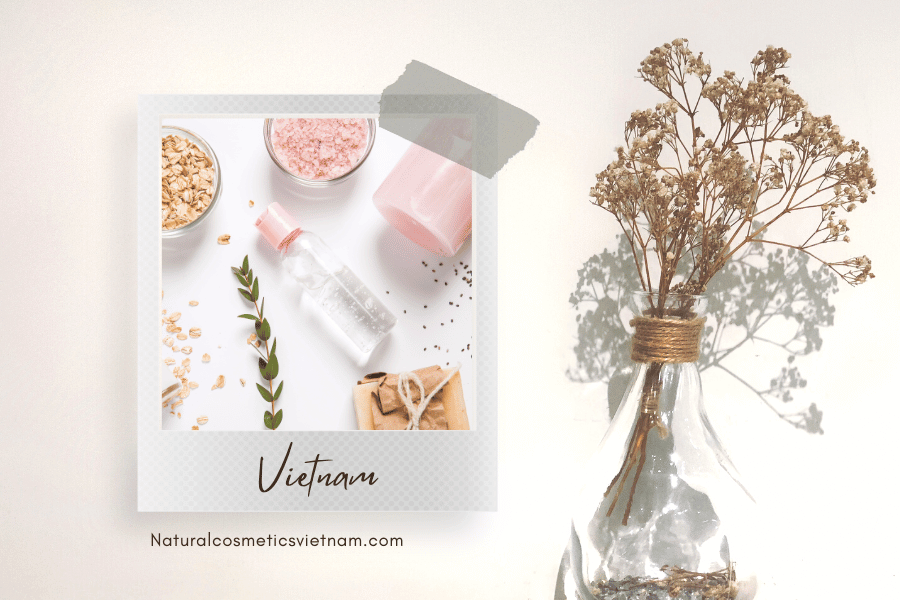
Natural ingredients to make natural cosmetics
Fewer side effects
Natural ingredients are often associated with fewer side effects than synthetic alternatives. This is because natural ingredients are typically biocompatible with the human body, meaning they are less likely to cause adverse reactions. Synthetic ingredients, on the other hand, are often made up of chemicals that can be harsh and irritating to the skin, hair, or body.
One reason natural ingredients are less likely to cause side effects is that they are typically free from harmful chemicals like parabens, sulfates, and phthalates, which are commonly found in synthetic products. These chemicals have been linked to various health problems, including cancer, reproductive issues, and skin irritation.
In addition, natural ingredients often contain a complex mix of active compounds that work together synergistically to provide therapeutic benefits. This means that natural ingredients are often more gentle and effective than synthetic alternatives.
Of course, it is still possible to have an allergic reaction or sensitivity to natural ingredients, just as it is with synthetic ingredients. However, because natural ingredients are often biocompatible with the human body, they are generally considered to be safer and less likely to cause side effects than synthetic alternatives.
Better absorption
Natural ingredients are often better absorbed by the skin or hair than synthetic alternatives. This is because natural ingredients are typically made up of smaller molecules that can penetrate the skin or hair shaft more easily.
For example, natural oils like coconut oil, jojoba oil, and argan oil have small molecular structures that allow them to penetrate the skin or hair shaft and provide nourishment and hydration. These oils also contain a complex mix of vitamins, minerals, and essential fatty acids that can be easily absorbed by the skin or hair, making them more effective than synthetic alternatives.
In addition, natural ingredients often work with the body’s natural properties to enhance absorption. For example, many natural ingredients are rich in antioxidants that can help protect the skin or hair from damage caused by free radicals. Free radicals are unstable molecules that can cause oxidative stress and damage to cells, leading to premature aging, wrinkles, and other skin or hair issues.
Furthermore, natural ingredients often work synergistically with other natural ingredients to enhance absorption and efficacy. For example, when used together, natural ingredients like aloe vera, chamomile, and calendula can soothe and hydrate the skin, while also promoting healing and reducing inflammation.
Potentially more effective
Natural ingredients may be more effective than synthetic alternatives in some cases. This is because natural ingredients often contain a complex mix of active compounds that work together synergistically to provide therapeutic benefits.
For example, many natural ingredients are rich in antioxidants that can help protect the skin or hair from damage caused by free radicals. Free radicals are unstable molecules that can cause oxidative stress and damage to cells, leading to premature aging, wrinkles, and other skin or hair issues. Natural ingredients like green tea, vitamin C, and acai berry are all rich in antioxidants and can help protect the skin or hair from free radical damage.
In addition, natural ingredients often have anti-inflammatory, antimicrobial, and anti-fungal properties that can help reduce inflammation, fight bacteria or fungi, and promote healing. For example, natural ingredients like tea tree oil, honey, and aloe vera have all been shown to have these therapeutic properties and can help improve skin or hair health.
Furthermore, natural ingredients often work with the body’s natural properties to enhance efficacy. For example, natural ingredients like coconut oil and shea butter are rich in essential fatty acids that can be easily absorbed by the skin, providing hydration and nourishment. This can help improve the overall health and appearance of the skin or hair.
Safer
Natural ingredients are often considered safer than synthetic alternatives, especially when it comes to long-term use. This is because natural ingredients are typically biocompatible with the human body, meaning they are less likely to cause toxic effects over time.
Synthetic ingredients, on the other hand, are often made up of chemicals that can be harsh and irritating to the skin, hair, or body. Many of these chemicals have been linked to various health problems, including cancer, reproductive issues, and skin irritation. Some synthetic ingredients can also accumulate in the body over time, leading to toxic effects.
In addition, natural ingredients are often free from harmful chemicals like parabens, sulfates, and phthalates, which are commonly found in synthetic products. These chemicals have been linked to various health problems and are often avoided by people who are looking for safer alternatives.
Furthermore, natural ingredients often have a long history of use in traditional medicine and have been shown to be safe and effective over many years. For example, ingredients like aloe vera, tea tree oil, and chamomile have been used for centuries to treat various skin and hair issues, and are generally considered safe for most people.
Natural ingredients have been proven to have many benefits when used in the production of natural cosmetics. They are not only safer than synthetic alternatives but can also provide many nutrients and nourishing properties for the skin and hair. Some of these natural ingredients include coconut oil, shea butter, chamomile, green tea, vitamin E, and many others. Additionally, natural dyes are also being used to create natural makeup products with bright and safe colors for the skin. With these benefits, the use of natural ingredients in the production of natural cosmetics is becoming a popular trend and preferred by consumers.










Leave a reply